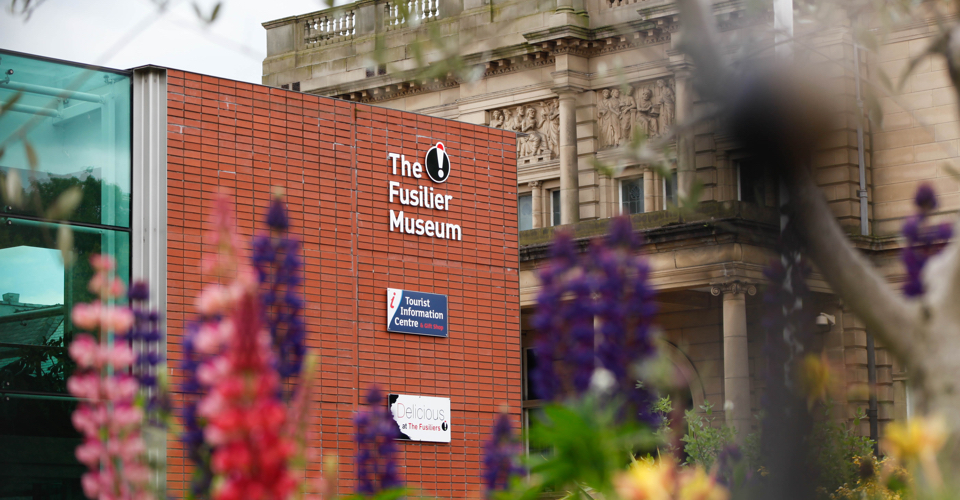NZBlue
Well-Known Member
Respect, for both the ANZAC heroes and the comments on here
Sad that, R.I.PI've found the memorial, I'd just be interested to know what happened between the beach landing and the August when he died.
View attachment 115889
Another great poem about ANZAC dayWe, the British, did nothing of the sort. Australia was a federated country by then and had considerable enthusiasm for the wars and indeed were pushing for it politically before the British even declared war. And neither the First or Second World War were "our wars", they were a response to geopolitical events that affected the entire world and were fought across the entire world.
Many Australian historians consider Gallipoli and the ANZAC participation in the First World War as absolutely key to establishing an Australian national identity separate to that of the British and the "We're All Australians Now" poem that school's recite was written about Gallipoli.
You believe your version, I'll believe mine. I am not proud of the British Empire and all those we killed to get it.We, the British, did nothing of the sort. Australia was a federated country by then and had considerable enthusiasm for the wars and indeed were pushing for it politically before the British even declared war. And neither the First or Second World War were "our wars", they were a response to geopolitical events that affected the entire world and were fought across the entire world.
Many Australian historians consider Gallipoli and the ANZAC participation in the First World War as absolutely key to establishing an Australian national identity separate to that of the British and the "We're All Australians Now" poem that school's recite was written about Gallipoli.
Every single Anzac in the First World War was a volunteer,so not one of them was conscripted into the armed services.We, Britain, nearly wiped Australia off the map.
Our 2 wars decimated the population so much, by the mid 60's the country was on its knees.
The £10 pom allowed the country to rebuild.
The point I am trying to make is we, the British should always remember what the Anzacs gave up and sacrificed for a war thousands of miles from home.
The Royal Service Legion Club near my sons still stand as the last post is played at 6pm EVERY DAY.
I know they were volunteers. I know they were very brave.Every single Anzac in the First World War was a volunteer,so not one of them was conscripted into the armed services.
So they were all very brave men to actually volunteer to fight in " The War to End All Wars".
But they went into battle in the knowledge that they had volunteered to fight for their countries who were at war with The Axis Powers .
Whilst in the wider world it is principally remembered in terms of the Anzac experience, it is also one of the principal battle honours of the Lancashire Fusiliers who famously won '6 VCs before breakfast' at W Beach in Gallipoli (as well . The museum is well worth a visit to find out more, though I should declare an interest in that I have a role in the organisation.Have you tried the Lancashire Fusiliers Museum in Bury. I've never been but I've heard that it has a lot of artefacts and there might be medical reports or even someone's diary that mentions him? I know how difficult it can be as a lot of the WW1 records in the War office were destroyed by fire in the second world war.
Also I was given a report of my grandfather's death (although it made me cry as he was 'blown to bits') from the Manchester and Salford Local History forum. There was a guy on there (although I'm going back before Lockdown now) who seemed to have a lot of information.

Home | The Fusilier Museum, Lancashire
The Fusilier Museum is home to the collections of the XX Lancashire Fusiliers and the Royal Regiment of Fusiliers. Together they record over 300 years of history and heritage.www.fusiliermuseum.com
I’ve been to that memorial.I've found the memorial, I'd just be interested to know what happened between the beach landing and the August when he died.
View attachment 115889
I have been there, it is very moving and the graves are maintained superbly.I visited Gallipoli in the mid 70s, incredible place, empty and eerily silent.
Broken , rusting wrecks of landing craft still in the water and bullets, human remains could still be found in the dunes above the beach.
Incredibly beautiful war graves incredibly well looked after near the shore line.
I was a young kid at the time but the experience had a huge impact on me.
Yes the Commonwealth Graves Commission do take pride in maintaining the graves and the memorials. :-)I have been there, it is very moving and the graves are maintained superbly.
